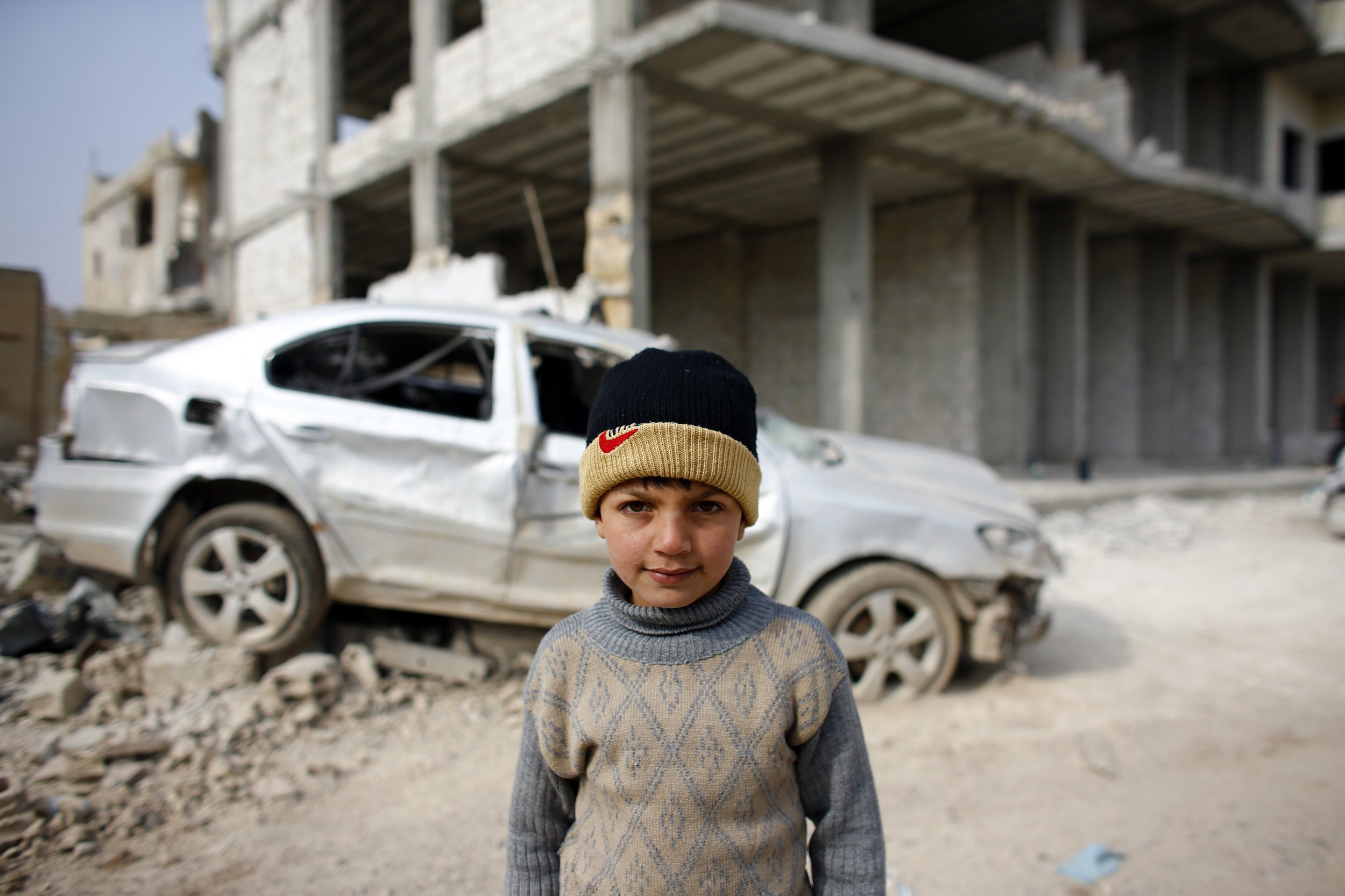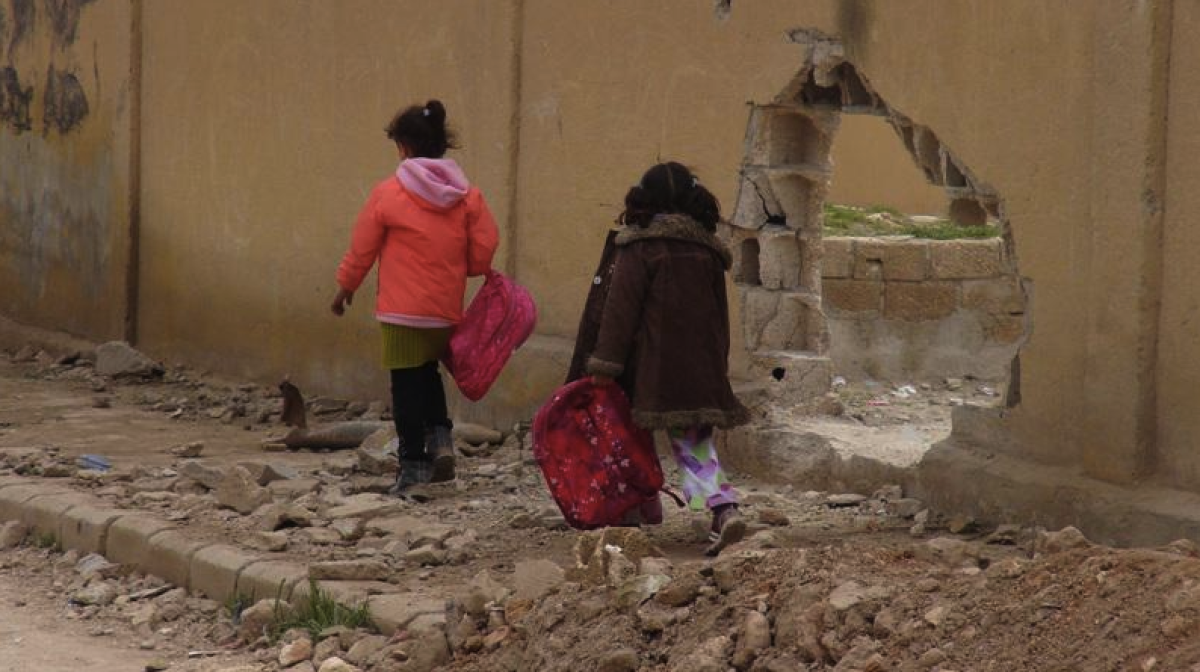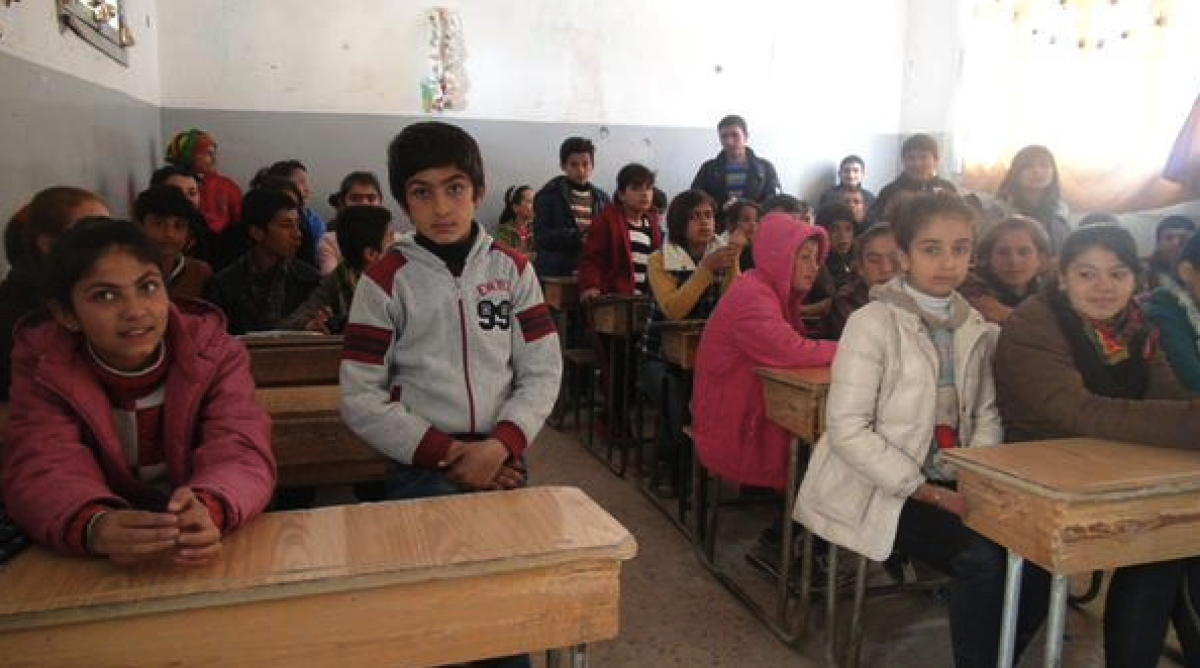
Syrian-Kurdish children have finally started to return to school in Kobane six months after ISIS launched their siege on the Syrian city and two months after it was liberated by Kurdish fighters, the city's head of education has told Newsweek.
The city, which lies on the Turkish-Syrian border, was the scene of fierce street battles during a four-month campaign by the radical Islamists that left more than 1,200 buildings destroyed and 1,150 damaged, according to the United Nations.
In January, the city was freed from the clutches of the terror group with the help of approximately 700 US-led coalition airstrikes. However, the conflict resulted in the deaths of more than 1,800 people from both sides, according to the Syrian Observatory for Human Rights (SOHR), and 200,000 civilians were forced to flee across the border into neighbouring Turkey.
In the conflict's aftermath, children are now resuming their education despite the devastation surrounding them and the vast amounts of unexploded ordnance that remains in the city.

Hussein Mohammed Ali, head of the education board of the Kobane Canton government, revealed that some 1,000 volunteer teachers were registered in Kobane to help the children when they return to school while Yasir Beyro, a member of the Kurdish Teachers' Union, revealed that 1,000 children have now been enrolled in two schools since the conflict ended, one of which was reopened last week.
"First we opened one school and last week the second one. We are currently working to open four more schools," says Ali. "We have total of 1,000 teachers who are working on a voluntary basis without a salary."
"We lost everything during the war so we need help to provide good education to our children," he adds. "Once we can find the resources we will start repairing damaged buildings and build new schools. Most of our schools were exposed to significant damage as a result of sabotage and terrorist attacks by ISIS."
Despite the children returning to their everyday lives following the conflict, they are still traumatised and require additional support, says Beyro.
"In the classroom we see the students are singing 'war songs' and they frequently draw fighting, killing, and beheading," he reveals.

A teacher in Kobane, Chiman Hevi, supports Beyro's statement, noting that some of her students witnessed "cruelties of ISIS members".
"We want children to return back to the school so that they can get rid of the devastating impacts of the war. We want to help them, but we do not have enough materials," she says.
The two schools that are currently open in Kobane, Martyr Berfin and Martyr Osman, are to be complemented next week by the opening of a third school named Mishtenur, says Beyro, estimating that within two weeks the number of students in education in Kobane will rise to 4,000.
During ISIS's assault on Kobane, 70% of the entire city was destroyed, according to Rami Abdurrahman, director of the SOHR. The UK-based monitoring group documented the deaths of 39 Kurdish civilians - four of whom were beheaded - 502 YPG fighters and 1,271 ISIS militants. The figures did not include deaths resulting from U.S.-led coalition airstrikes.
Photographs taken in the wake of the Kurdish victory showed entire buildings levelled and unexploded rockets perched on the side of the city's roads, demonstrating the new threat which returning civilians and students must now confront.
ISIS's defeat in the Syrian city was a major strategic and propaganda blow to the group and a significant victory for Kurdish civilians across the Middle East, with scenes of Kurdish celebrations in Syria, Turkey Iraq and Iran circulating across social media. If the militants had been able to hold the town, they would have controlled a major crossing point into neighbouring Turkey.
Uncommon Knowledge
Newsweek is committed to challenging conventional wisdom and finding connections in the search for common ground.
Newsweek is committed to challenging conventional wisdom and finding connections in the search for common ground.
About the writer
Jack is International Security and Terrorism Correspondent for Newsweek.
Email: j.moore@newsweek.com
Encrypted email: jfxm@protonmail.com
Available on Whatsapp, Signal, Wickr, Telegram, Viber.
Twitter: @JFXM
Instagram: Read more
To read how Newsweek uses AI as a newsroom tool, Click here.








